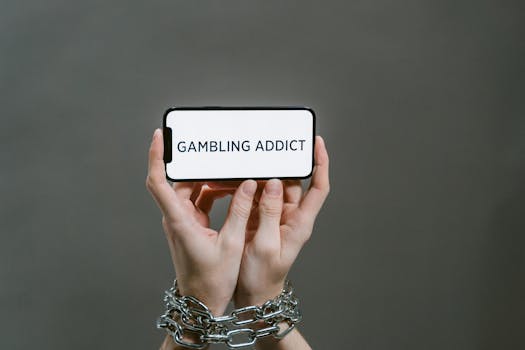The Impact of Gambling on Mental Health
Gambling, a popular pastime enjoyed by millions worldwide, can be a harmless entertainment but also a serious risk, particularly when it turns into an addiction. This article explores the significant effects of gambling on mental health, shedding light on how this activity can transition from casual fun to a severe health issue. It also provides insight into various approaches to managing and mitigating these effects.
Understanding Gambling Addiction
Gambling addiction, also known as compulsive gambling or gambling disorder, is an impulse-control disorder. Gamblers can face significant psychological distress, financial hardship, and personal relationships deterioration. The continuous thrill and the chase of losses can lead to a cycle that's hard to break without help. Symptoms of gambling problems may include restlessness, irritability when trying to stop, prioritizing gambling over responsibilities, and lying about gambling habits.
Psychological Effects of Gambling
The impact of gambling on mental health is profound. Chronic gamblers often experience a range of psychological symptoms, including depression, anxiety, and sometimes even suicidal thoughts. The stress of debt and financial ruin can exacerbate these issues, leading to a deteriorating mental state. Moreover, problem gambling can affect neurotransmitter systems in the brain, similar to substance addictions, which can lead to feelings of withdrawal and a need to increase gambling behaviors to achieve the same "high."
Approaches to Managing Gambling's Impact on Mental Health
Cognitive Behavioral Therapy (CBT)
Advantages: CBT is one of the most effective treatments for gambling addiction. It involves changing the gambler's beliefs and behaviors related to gambling. Therapists work with individuals to help them fight urges, deal with uncomfortable emotions, and solve financial, work, and relationship problems caused by the addiction.
Disadvantages: CBT requires commitment and consistent participation, which can be a hurdle for those who are not fully committed to recovery. It also requires finding a trained therapist, which might not be accessible to everyone.
Medication
Advantages: For some, medications can be an effective adjunct therapy for problem gambling. Antidepressants and mood stabilizers might help treat problems that often co-occur with gambling addictions, such as depression or bipolar disorder. Naltrexone, a medication used for treating substance addiction, has also shown promise in reducing the urges to gamble.
Disadvantages: Medication does not address the root cause of gambling and is typically recommended only in conjunction with other forms of therapy. Side effects can also be a deterrent for some individuals.
Self-help and Support Groups
Advantages: Groups like Gamblers Anonymous provide peer support, which can be incredibly beneficial. These groups offer a platform for sharing experiences and recovery strategies, fostering a sense of community among members.
Disadvantages: The effectiveness can vary significantly from person to person. Some might find sharing personal experiences in a group setting uncomfortable, which can impede progress.
Practical Example
Consider the story of John, a regular at casinos who initially started gambling for fun. Over time, John found himself in a cycle of 'chasing losses,' leading to severe debt and anxiety. When John sought help through CBT and joined a support group, he noticed a gradual improvement in his mental health and eventually broke free from the cycle of gambling.
Conclusion
The impact of gambling on mental health can be severe and life-altering. While gambling can be a fun occasional activity, it is important to remain vigilant and recognize the signs of addiction early. Treatments like Cognitive Behavioral Therapy, medication, and support groups have proven effective in helping individuals cope with the consequences of excessive gambling. If you or someone you know is struggling with gambling addiction, it is crucial to seek professional help. Early intervention is key to recovery and can help mitigate the adverse effects on mental health.
Remember, the first step towards recovery is acknowledging the problem. Encourage seeking help and support from professionals and peers alike to manage the impact of gambling on mental health effectively.

.png)



